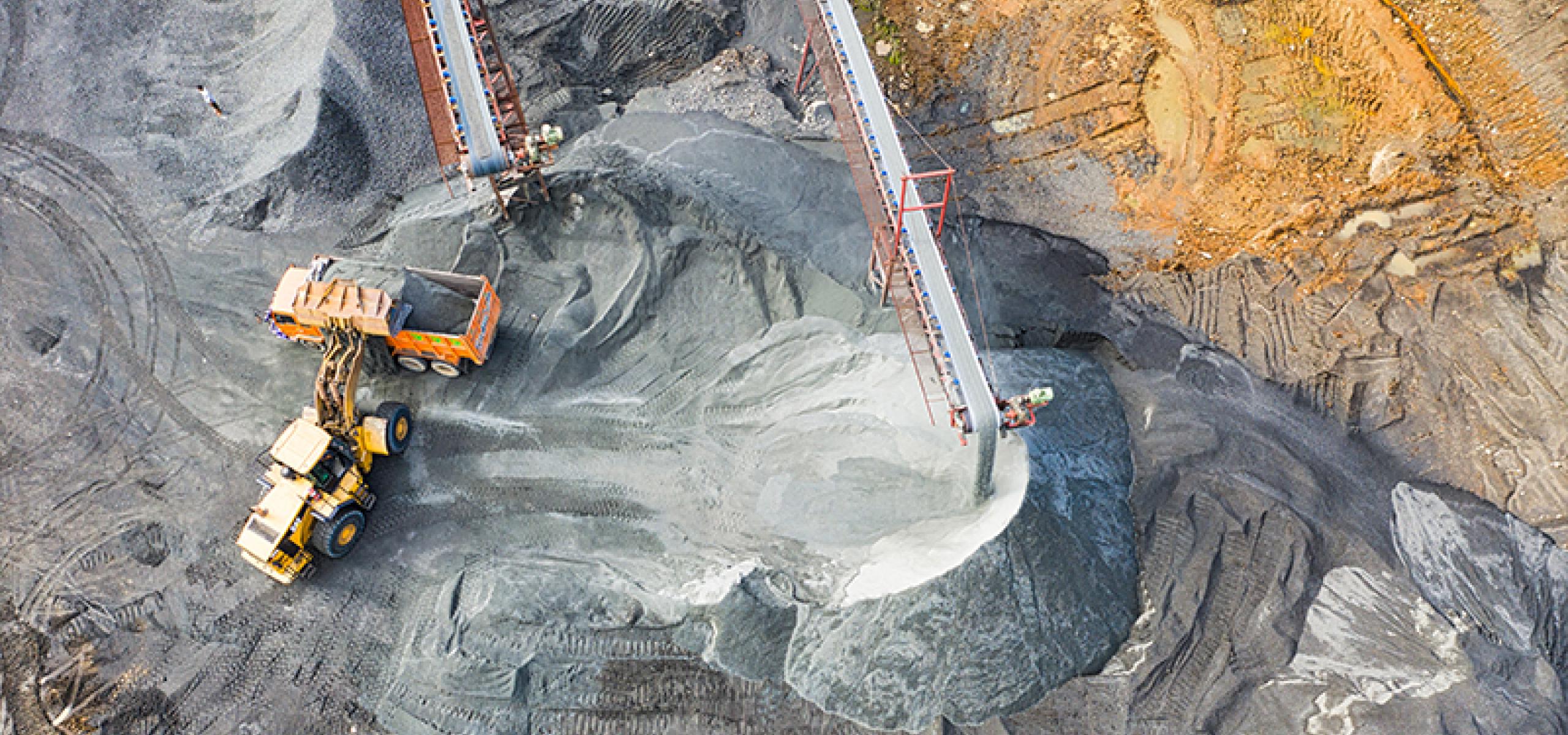
Date & time
Venue
Online via Zoom Webinar
Register for the event
Event description
EPBC Act: Federal environment reform in an age of climate crisis
An interim review of the Environment Protection and Biodiversity Conservation (EBPC) Act found the law is "ineffective" amid the current "unsustainable" environmental trajectory. Although efforts have been made to streamline the EPBC Act and state and territory laws, efforts to speed-up development approvals and cut 'green tape' risk undermining the reform direction. As Australia nears the end of one of its most devastating years environmentally, how can our laws protect our national landmarks, conserve vulnerable ecosystems and safeguard our species amid an extinction emergency? Join our expert panel as we discuss these issues and more.
Speakers
The Hon Justice Rachel Pepper
[[{"fid":"38174","view_mode":"full","fields":{"format":"full","field_file_image_alt_text[und][0][value]":"The Hon Justice Rachel Pepper","field_file_image_title_text[und][0][value]":false},"type":"media","field_deltas":{"2":{"format":"full","field_file_image_alt_text[und][0][value]":"The Hon Justice Rachel Pepper","field_file_image_title_text[und][0][value]":false}},"attributes":{"alt":"The Hon Justice Rachel Pepper","class":"media-element file-full","data-delta":"2"}}]]
The Hon Justice Rachel Pepper (BA '92, LLB (Hons) '94) was appointed as a Judge of the Land and Environment Court of NSW in May 2009.
From 1997 until her appointment in 2009, Justice Pepper practised as a barrister at the New South Wales Bar. Her principal areas of practice were general commercial law and public law, including constitutional and administrative law. While at the bar, Justice Pepper was a member of Bar Council from 2000-2009 and was Secretary of the Bar Council from 2006 to 2009.
Prior to being called to the bar, Justice Pepper was the Associate to Justice Michael McHugh AC in the High Court of Australia.
In 2015 Justice Pepper was the inaugural visiting judicial fellow at the Australian National University’s Centre for International and Public Law at the ANU College of Law.
In 2017 and 2018 she chaired the Scientific Inquiry into Hydraulic Fracturing of Onshore Unconventional Gas Reservoirs and Associated Activities in the Northern Territory.
She is an Adjunct Professor at the University of Sydney’s Law School where she lectures in Environmental Litigation.
She is also a member of the Ngara Yura Committee of the Judicial Commission of New South Wales.
Finally, she is a proud board member of Twenty10.
Rachel Walmsley
[[{"fid":"38184","view_mode":"full","fields":{"format":"full","field_file_image_alt_text[und][0][value]":"Rachel Walmsley","field_file_image_title_text[und][0][value]":false},"type":"media","field_deltas":{"3":{"format":"full","field_file_image_alt_text[und][0][value]":"Rachel Walmsley","field_file_image_title_text[und][0][value]":false}},"attributes":{"alt":"Rachel Walmsley","class":"media-element file-full","data-delta":"3"}}]]
Rachel Walmsley (BA '96, LLB (Hons) '98, GDLP '02) is the Head of Law Reform at Environmental Defenders Office. She has over 17 years experience working on public interest environmental law and policy in Australia and overseas. She has written extensive law reform submissions and discussion papers and advised governments and NGOs on a range of environmental law issues, including planning, natural resource management and biodiversity laws. Rachel is a member of the Consultative group established by Prof Graeme Samuel for the EPBC Act review.
Rachel is a member of a number of government and non-government advisory committees on biodiversity, natural resource and environment issues, a legal advisor to the Wentworth Group of Concerned Scientists, legal advisor to the Places You Love alliance on national law reform, and guest lectures in environmental law. Rachel is a member of the Australian Panel of Experts on Environmental Law (APEEL) and a member of IUCN – World Commission on Environmental Law.
Rachel’s previous work has included advising the peak environment groups of NSW on environmental legislation before the NSW parliament, undertaking research for the Australian Centre for Environmental Law (ACEL) at ANU, and conservation field work for a British conservation organisation in Tanzania and the UK. Rachel has also been a Co-Consulting Editor of the Australian Environment Review and Chair of the Australian Committee for IUCN
Annika Reynolds
[[{"fid":"38194","view_mode":"full","fields":{"format":"full","field_file_image_alt_text[und][0][value]":"Annika Reynolds","field_file_image_title_text[und][0][value]":false},"type":"media","field_deltas":{"4":{"format":"full","field_file_image_alt_text[und][0][value]":"Annika Reynolds","field_file_image_title_text[und][0][value]":false}},"attributes":{"alt":"Annika Reynolds","class":"media-element file-full","data-delta":"4"}}]]
Annika Reynolds is a young leader in the climate justice space. She is a current Laws (Hons)/International Security Studies student at the ANU, and the founder of GreenLaw, an ANU Law Reform and Social Justice Project. GreenLaw is an Australian-first initiative, empowering law students to contribute to substantive climate justice in partnership with academics, private actors and environmental organisations. GreenLaw has been involved in major government enquiries, had its research published and discussed by major media outlets, and been a driving force behind national and international projects, including collaborations with Farmers for Climate Action and the Antarctic and Southern Ocean Coalition. Annika is also a board director for Zero Emissions Noosa Inc, which is striving to ensure the Noosa region has net zero emissions by 2026.
She was a Research Assistant to Dr Peter Burnett on federal environmental regulation from 2019-2020, and has since been appointed as a consultant to the Australian Conservation Foundation analyzing development approvals processes under the EPBC Act. Annika is a published researcher on federal environmental litigation and the impact of climate change on migration and inter-communal violence in the South Pacific.
Professor Jamie Pittock (moderator)
[[{"fid":"38204","view_mode":"full","fields":{"format":"full","field_file_image_alt_text[und][0][value]":"Professor Jamie Pittock","field_file_image_title_text[und][0][value]":false},"type":"media","field_deltas":{"5":{"format":"full","field_file_image_alt_text[und][0][value]":"Professor Jamie Pittock","field_file_image_title_text[und][0][value]":false}},"attributes":{"alt":"Professor Jamie Pittock","class":"media-element file-full","data-delta":"5"}}]]
DrJamie Pittock (PhD '11) is a Professor in the Fenner School of Environment and Society at The Australian National University. Jamie worked for environmental organisations in Australia and internationally from 1989-2007. He led WWF Australia’s advocacy for the Environment Protection and Biodiversity Conservation Act in 1999. He was Director of WWF’s Global Freshwater Programme from 2001-2007. His research from 2007 has focussed on better governance of the interlinked issues of water management, energy and food supply, responding to climate change and conserving biological diversity. Jamie directs research programs on irrigation in Africa, hydropower and food production in the Mekong region, and sustainable water management in the Murray-Darling Basin. He is a member of the Wentworth Group of Concerned Scientists and is a scientific adviser to TNC and WWF in Australia. Dr Pittock teaches courses on environment and society as well as on climate change adaptation.
